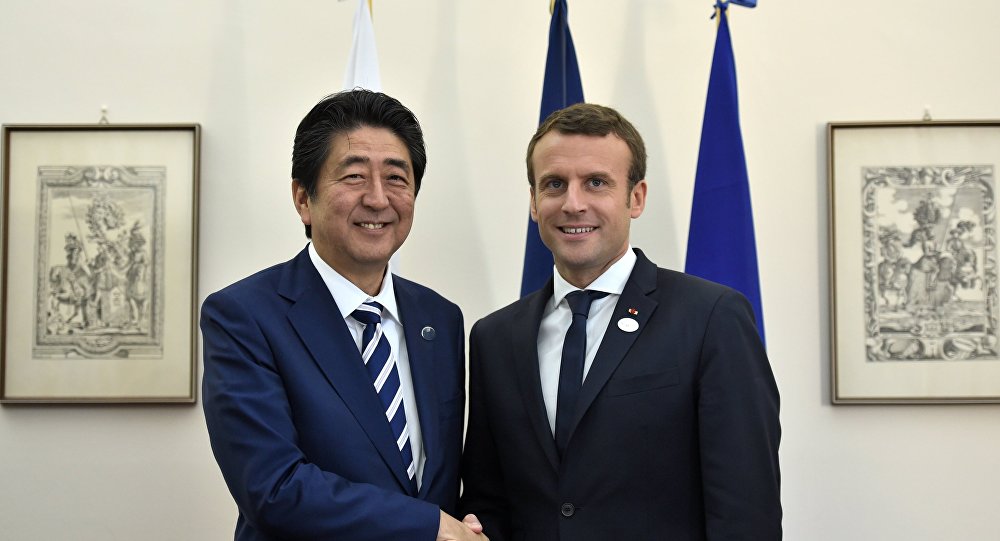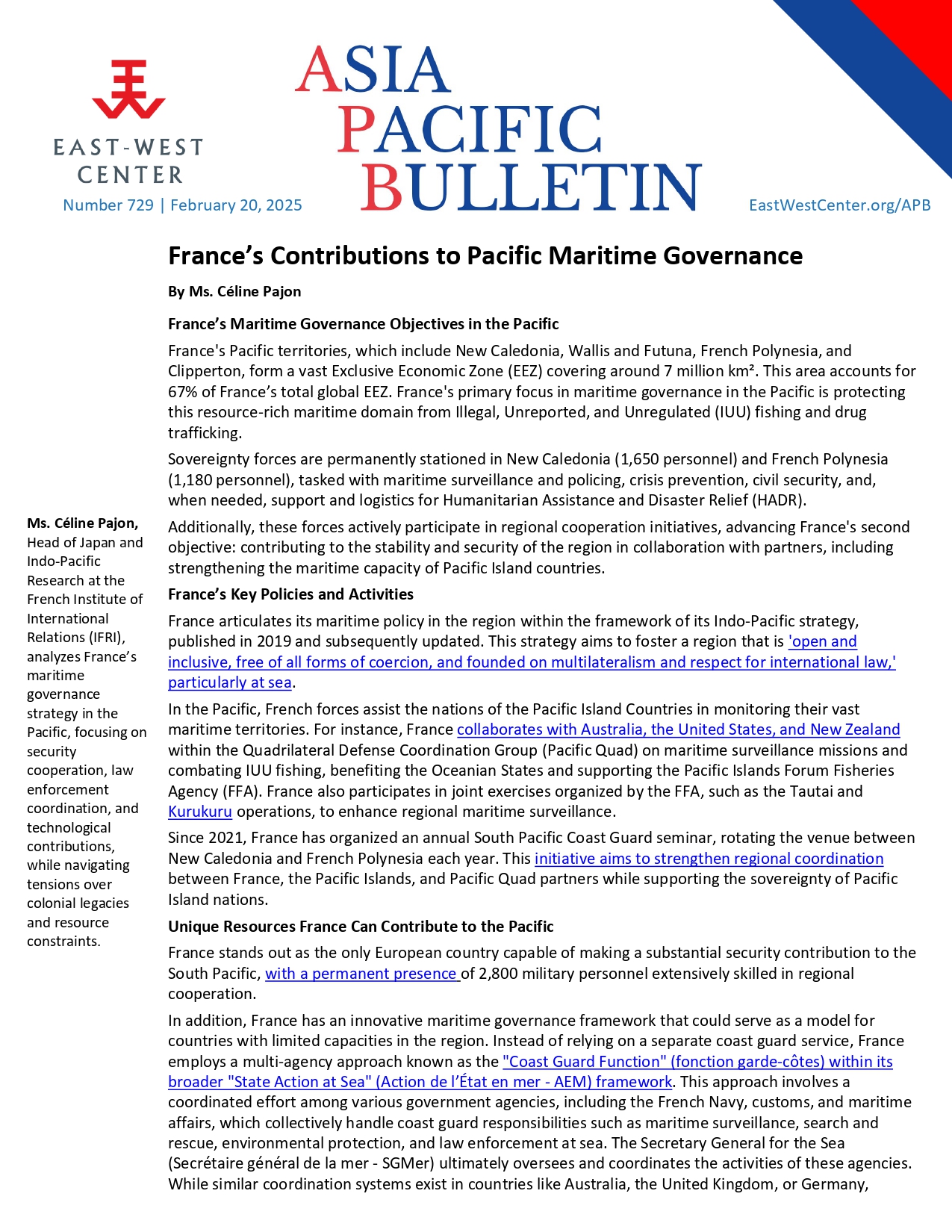France and Japan in Africa: a Promising Partnership

If some African countries are on their way to achieving dynamic economic growth, many are also still struggling with a lack of economic and social infrastructure, latent governance issues and often complex and risky security environments. In this context, both Japan and European countries, especially France, are making efforts to increase not only their development assistance, but also private investments and security cooperation in Sub-Saharan Africa.

As two important players on the African continent, Japan and France are also looking to enhance their bilateral cooperation on the field. Based on discussions held during a conference at Ifri in on 10 July 2017, this note explores different avenues for Franco-Japanese cooperation following the views expressed by French and Japanese officials and experts regarding the countries’ respective roles on the African continent.
Ensuring sustainable development and economic growth in Africa
Development assistance – from coordination to cooperation
France and Japan have both been long-term, traditional aid donors in Africa. For France, Africa is a priority for largely historical reasons. Indeed, half of the activities overseen by the French Development Agency (AFD) today are located in Africa, and this regional focus is expected to be maintained in the future. But the French contribution is no longer focusing only on Western, French-speaking countries – Kenya, for instance, is the first recipient of French aid today. Paris’s approach to Africa has also been reformed this year in favor of a more systemic approach that doesn’t distinguish between North Africa and Sub-Saharan Africa for administrative purposes, for example, but that encourages tailored solutions according to local situations.
In contrast, the bulk of Japan’s development assistance is still devoted to the Asian region – only around 15% of Japanese aid goes to Africa. However, Tokyo can take advantage of the lessons and experiences learned when dealing with fragile, conflict-affected Asian states such as Cambodia to develop its activities in Africa. Indeed, inclusive growth and massive job creation have been achieved in Asian recipient countries. Moreover, the Japan International Cooperation Agency (JICA) is a key actor that can claim an extensive network and significant funding to support African development.
To continue reading the paper, please download the file.
Download the full analysis
This page contains only a summary of our work. If you would like to have access to all the information from our research on the subject, you can download the full version in PDF format.
France and Japan in Africa: a Promising Partnership
Related centers and programs
Discover our other research centers and programsFind out more
Discover all our analysesJammu and Kashmir in the Aftermath of August 2019
The abrogation of Article 370, which granted special status to the state of Jammu and Kashmir (J&K), has been on the agenda of the Bharatiya Janata Party (BJP) for many decades.

France’s Contributions to Pacific Maritime Governance
France stands out as the only European country capable of making a substantial security contribution to the South Pacific, with a permanent presence of 2,800 military personnel extensively skilled in regional cooperation.
Unlocking India’s Energy Transition: Addressing Grid Flexibility Challenges and Solutions
India is rapidly scaling up its renewable energy (RE) capacity, adding 15–20 GW annually, but the ambitious goal of 500 GW of non-fossil capacity by 2030 is at risk unless the pace accelerates.

The China-Russia Partnership and the Ukraine War: Aligned but not allied
China and Russia maintain a strategic partnership rooted in shared opposition to the U.S. and liberal democracies, but their relationship is shaped more by pragmatism than trust.











